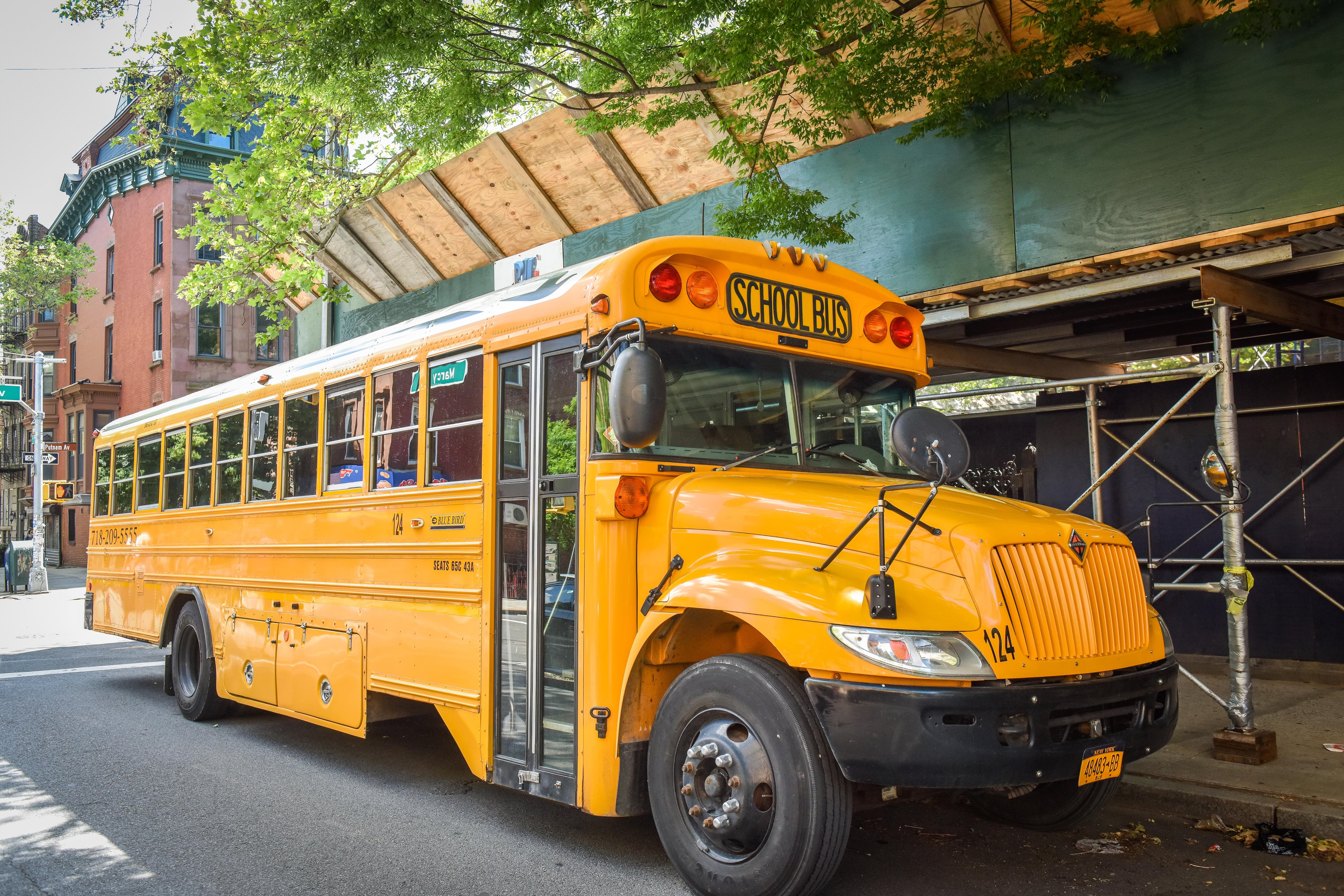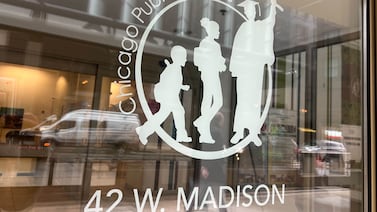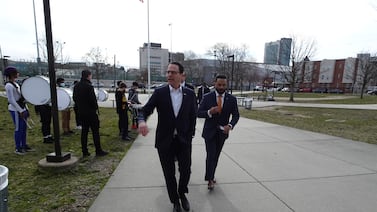When Gov. Kathy Hochul unveiled a proposal to abolish the cap on the number of charter schools that can open in New York City, she said the policy is a matter of common sense, noting that children of color have experienced waitlists to enroll.
“I don’t think we should be telling them they don’t have a choice,” Hochul said in an interview on NY1 earlier this month.
The city’s charter sector has long been defined by its explosive growth and lengthy waitlists while enrollment has sagged among the city’s district schools. But preliminary state enrollment data suggests that demand for charter schools may be cooling — including among the city’s largest networks — complicating arguments for lifting the charter cap.
The city’s charter sector grew slightly this school year, by 0.42%, compared with a 2% decline among traditional public schools. But that masks important variations among charters: About 45% of them enrolled fewer students this year, according to a Chalkbeat analysis of state data. (The official statistics sometimes group multiple campuses under the same charter school.) About 60% of traditional public schools enrolled fewer students.
Meanwhile, the city’s most established networks enrolled fewer students this year than they did last year, including Success Academy (down 7.7%), Uncommon Schools (6.5%), KIPP (5%), and Achievement First (3.9%).
The governor’s proposal would abolish the local cap on the number of charter schools and release so-called “zombie” charters — essentially making New York City operators eligible for just over 100 new charter schools, which are privately managed and publicly funded.
But experts said there are trade offs of opening new schools in an environment where school leaders are struggling to fill all their seats. Since public dollars follow students, more schools vying for the same or shrinking pool of children would lead to smaller budgets or could even prompt closures, possibly affecting existing charters and district schools alike.
“The charter sector has grown substantially over time,” said Aaron Pallas, a professor at Columbia University’s Teachers College. “But opening new schools at a time when you’re seeing these signs of contraction strikes me as something that requires a fair amount of thought.”
Pallas pointed to evidence that competition from nearby charter schools boosts student learning among district schools, an argument in favor of lifting the cap. But he also worries that the new charters, which educate over 14% of the city’s public school students, may not be viable long term or could threaten other schools by drawing funding away from them. “I don’t think it’s good for kids for there to be that kind of instability,” he said.
Still, charter leaders and advocates argue that there is still plenty of demand for new schools in certain neighborhoods and families should have as many choices as possible. Multiple charter network leaders unequivocally said they support raising the cap, though smaller operators have quietly expressed that any growth should carefully take neighborhood-level demand into account.
“Several of our schools in Brooklyn and our middle schools, in particular, continue to receive strong and positive demand from parents, indicating a significant need for high-quality schools in these areas and grade levels,” Achievement First spokesperson Jacqui Alessi wrote in an email. “We are not competing with other charter operators; rather, we work closely with them, and we believe that more excellent schools will benefit students and families across the city.”
Despite falling birth rates and substantial declines in the number of Black children living in New York City (nearly half of the city’s charter students are Black), some charter leaders said they anticipate that enrollment will stabilize.
Other charter advocates emphasized that raising the cap would simply allow more charter schools to open and would not necessarily lead to a rush of operators opening new schools without demand for them.
“At the end of the day, nobody wants to open a school where they won’t succeed,” James Merriman, CEO of the New York City Charter School Center, said in a statement. “Authorizers will be working hard to only approve schools that have a viable path forward, and prospective school leaders will be looking carefully at the enrollment data and other key indicators before they decide to open a school.”
Asked if they plan to open new charter schools if the cap is lifted, different operators offered varying responses. A KIPP spokesperson said the network is “focused on continuing to expand our existing charters” — a significant source of the sector’s current growth as existing schools build out more grade levels over time.
A Success Academy spokesperson, Ann Powell, said the network intends to keep opening new schools due to “enormous demand and long waiting lists in many neighborhoods.” Success, the city’s largest network, has also tweaked its admissions policies in ways that could attract more families, including admitting new fifth and sixth graders at five of its middle schools. Officials previously declined to admit new students beyond the fourth grade.
Still, it remains to be seen how serious Hochul is about eliminating New York City’s charter cap. Some Democratic state legislators and union officials have pushed hard against the proposal, and some education groups have staged rallies opposing new charter schools, including this week. The governor received campaign contributions from unions, which are critical of the largely non-unionized charter schools, in addition to pro-charter groups.
“We will see during budget negotiations how much energy she puts behind it,” said Jasmine Gripper, a charter school critic and executive director of the Alliance for Quality Education, an advocacy group. “It feels really confusing about why the governor wants to allow such a massive expansion of charter schools where we don’t see this need.”
Alex Zimmerman is a reporter for Chalkbeat New York, covering NYC public schools. Contact Alex at azimmerman@chalkbeat.org.







